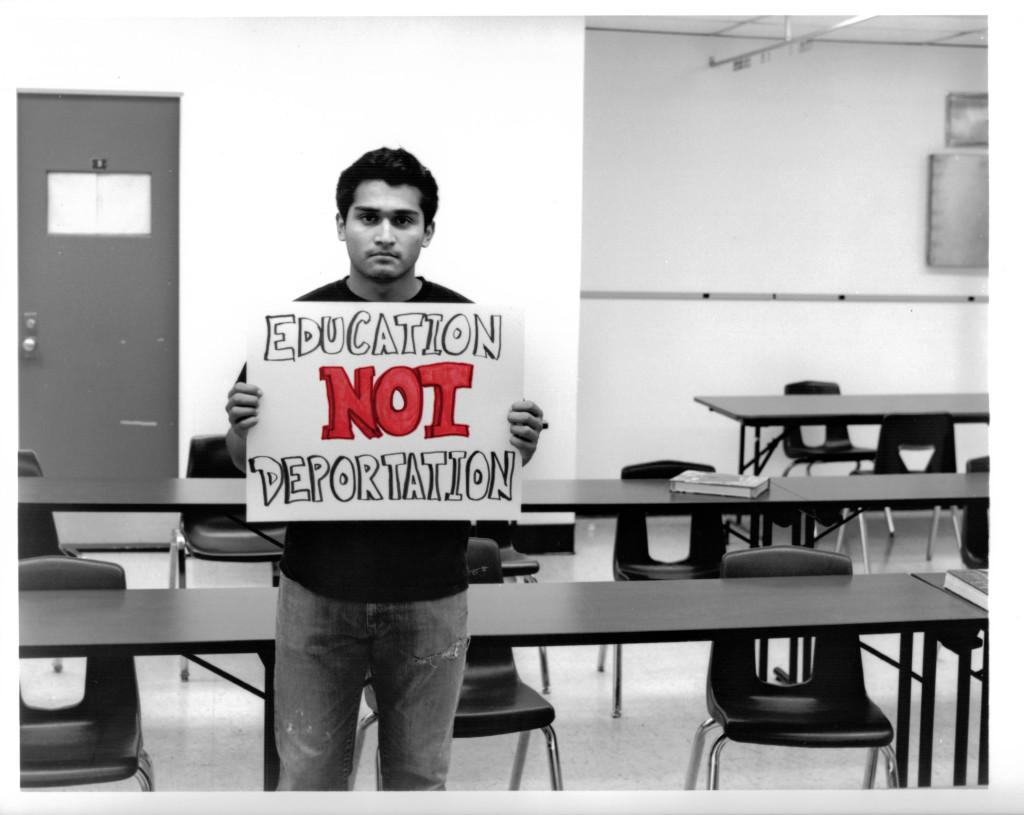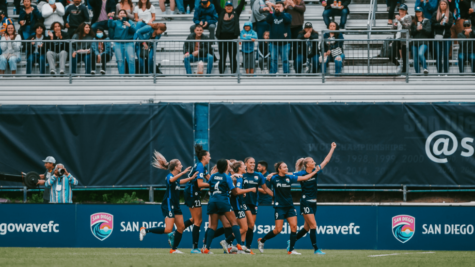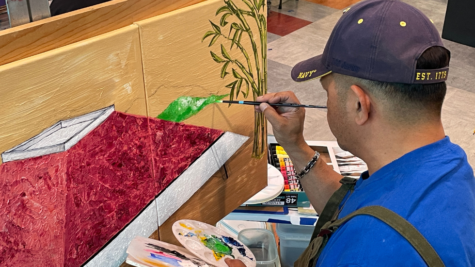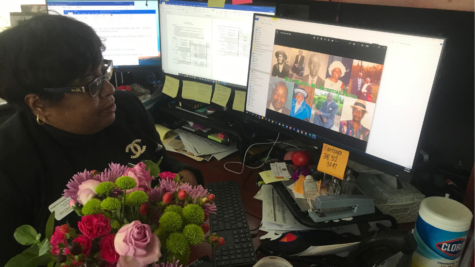The Hardest Fight
In Latino communities, when we hear about AB 540 students, we immediately think about tenacity, struggle, perseverance, capacity, constant challenges; but also impotence. These students are also known as Dreamers, Development Relief and Education for Alien Minors.
Dreamers are part of the 1.5 million students without legal documents that live in this country, with the majority coming from Mexico and other Latin American countries.
AB 540 is a bill that allows students who have attended and graduated from California high schools to pay tuition at residential rates.
Most of these students are young and have a contagious tenacity, eager to participate in class, and are focused on learning and paying attention to their instructors.
After seeing them interact in classes, we may think about how many of us take the privilege of receiving financial aid for granted, and sometimes we don’t appreciate the assistance.
Being an immigrant and undocumented is a difficult situation that makes it hard to live in the United States, and therefore, can make attending college something that is nearly impossible.
One of these students told me her parents had two jobs to help her get educated. They didn’t want her to have the same future they had, and wanted a better life for her.
Still, many of them will not pursue college for the financial burden this means for them and their families.
In August of 2012, an opportunity to legalize their status changed many of the lives of these students. President Obama announced the Deferred Action for Childhood Arrivals (DACA), a reprieve for deportation and a chance to get a work permit.
“I think President Obama is a very intelligent man, why try to deport them if it’s an opportunity to get money and pay taxes?” asked Juan Carlos Jimenez Cruz, a volunteer student career advocate at San Diego City College.
“They, (Dreamers) are the hardest workers I know. They’ve earned their right to be here in the United States. They are like ghosts, you don’t really see them, but they contribute to society, they contribute to our school. They are the kind of people I would like to have as my neighbors,” he said.
According to a petition to support equal academic and professional opportunities for undocumented graduate students at the University of California on July 9, out of about 11 million undocumented immigrants who live in the United States, only 1.76 million will benefit from the DACA initiative and 25 percent of DACA applicants are still in review. This gives evidence that DACA disenfranchises the vast majority of undocumented immigrants.
When I heard about DACA, I thought about my friend Alberto Rios’ words: “If I had legal documents; nothing could stop me to achieve anything. Nothing could be impossible.”
There are many hardships that immigrants endure, and 23-year-old Rios knows that. Without documents, people can be abused at work.
“I sell telephones, I’m the manager, the person that cleans, the cashier and I’m the only employee. I work nine and a half hours hours per day, five days a week and I earn $6.60 dollars an hour; I make $313.50 per week. Now I can look for better options,” said Rios.
When I asked him about how DACA changed his life, he said he’s not afraid anymore thinking that “the Migra” (slang for Border Patrol) is coming. Rios shares that “Now, I even have a driver license.”
For Rios, the DACA process took him about five months. He applied in September of 2012, one month after the act was announced, and by February he had his permits. “I felt fearless, now I go to Los Angeles without worrying. I can’t get out of the country, but I can use my social security number,” he said. “Now I need to prove that I deserve to be here. Dreamers are fighting to see if we can renew the permit every two years or an immigration reform arrives.”
According to an online Excelsior article on July 23, White House spokesperson Jay Carney said that a law project to legalize the DREAMers is far from being a viable solution.
Rios worries that he will fail people who believe in him, such as his parents or his mentor, Professor Enrique Davalos, Chair of the Chicano Studies Department. Rios said, “They have high expectations about me,” adding, “I think is not up completely to me. In me, there is hope to do something.”=
He wants to be a history teacher with a minor in chicano studies, saying, “I want to be the teacher that inspires his students, I want to be an example to them and tell them that when I arrived to this beautiful country I used to live in garages. My own people used to tell me to return to Mexico, that I did not belong there. In Mexico I suffered discrimination, but never racism like here.”
Rios shared that he arrived to the United States three days before turning 14 years old. One of the biggest challenges was adapting to an environment as different as San Diego. “People felt hate for the color of my skin, they will stereotype about me ‘maybe you steal,’ ‘you will have a lot of children,’ all because of my image, without even taking the opportunity to know who I am,” said Rios.
When I ask him if this is the opportunity Dreamers deserve since DACA is not a law and it’s only a two-year deal, with the opportunity to renew, he answers, “I think we have to take any opportunity: small or big. If I have the opportunity to see a little bit of the rainbow … just for that opportunity, I know it has seven colors.”
Rios says that thanks to this opportunity he feels distressed, “I’m not constantly thinking like before, here comes the Migra–what if they stop me? Now I feel, ok, stop me.”
He affirms that Mexicans are not the kind of people that come here with an idea of conformism. He recommends that if they do, they better return to their country.
“I feel like is a tank of oxygen what they sent us. We don’t know if they will send the boat, but at least we are breathing.”
An even younger student like 17-year-old Cristian Gonzalez, a senior student at Monte Vista High School in Spring Valley, perceives DACA as an opportunity to attend school without fear.
“Knowing I qualified for DACA was to put weight off my shoulders. It was another step up and obviously more doors open,” Cristian said. “I felt relief and safe thinking, ‘You can’t do anything to me no more.’”
He will be enrolled at Southwestern College next fall where he will try to pursue a career as a firefighter.
Many don’t mention that the Obama administration is using its authority to say that these deportations are not a priority, but the next president can end it.
For some this is not what they needed. For others, it’s an alternative they didn’t have before.
Gonzalez shared, “My parents told me from an early age not to tell anyone I wasn’t born here. So in my head I always thought I did something wrong.”
The Gonzalez Family moved to Spring Valley when Cristian was 5 years old, they crossed the border through Tecate, Mexico; “I didn’t know what I was getting into … I only followed my mom. When we arrived here, all we had was a mattress for 4 of us.”
For him it’s hard not knowing his grandparents or half of his family.
Gonzalez attended Spring Valley Elementary School, recalling that, “I had a great teacher in first grade, Ms. Wilson. I only knew how to say ‘water.’ She got tired and said, ‘You have to say, ‘may I have some water?’ She asked to be a teacher in second grade to keep teaching me.”
Contrary to them, 20-year-old Luis Lopez Resendiz disagrees with other Dreamers when asked about DACA. “To me, DACA is something they gave us to keep us even more oppressed … is like telling us, ‘give them this to keep them calmed down.’”
Lopez thinks the U.S. government is afraid of Dreamers because they know that giving them this “opportunity” is telling them “go and be free.” However, he said, “We are the ones supporting this country strong.”
He used to live in a poor neighborhood, in Tijuana, Colonia Obrera. When dead bodies started to appear, his father told him he didn’t want that for him. He told him he had to go to the United States, attend school and work hard to have a better life.
Luis works in construction like his father. He works Friday and Saturday. When he sees his pay check, it saddens him to know that he makes more in a day than his mother makes in a week. His mother and 19-year-old sister work in a maquiladora (factory) 12 hours a day.
“I admire my 19-year-old sister. We came to the United States together, but she doesn’t look the American dream like me. She told me, ‘the American dream without my mother is not a dream, I don’t know about you but I’m going back to Tijuana. So many times you said that you wanted to return and you don’t return.’”
But Lopez argues that there’s a reason; if he returns, he thinks it wasn’t worth his father’s sacrifice working from dawn to dusk to give him an education. Lopez sends money to his mother and sister every week.
Luis is a full-time student at City College where he started integrating himself into classes and learned more about his roots. He said it was so different than what he learned in school before.
“Graffiti and criminal ancestors or at the best only field workers: that’s the history of minorities according to High School teachers,” Lopez said, “it’s not their instructors fault, but how the system works here in K-12, it’s an Anglo perspective.”
Lopez is part of the Puente Program, whose mission is to increase the number of educationally underserved students, and where he learned to have a different American dream than the one he had before: work hard and send money to Mexico.
He believes Puente made him bring out the spirit that is inside him. Through the program he was invited to be the spokesperson at the Latino Board Education Members conference.
Lopez’s speech was about the importance of changing school programs provided now, like Junior Reserve Officer Training Corps, the importance of reading and having more ethnic studies classes to learn the story behind their countries.
Lopez has two more years at City College before transferring to Columbia School of Law in New York. He wants to be an immigration lawyer and create laws that support his people. “My people are leaving their dreams at the mountains, in the frontier.” He said.
Lopez said he would love to return to Mexico and practice a political career there. “I’m going to cross the border and help my family and educate my people about the truth: in the United States you are not going to sweep the dollars: vas a chingarte, a partirte la madre trabajando,” he said.
Lopez is hurt to see what is happening in Mexico. He wants to return to the country where he was born and expelled him to make changes.
He knows it will be very difficult because things are very ugly there, but he wants to do this for the country he loves.
“If no one does anything, then the ‘pueblo’ is fighting by itself.” Lopez said.
He is part of the Indigenous Front of Binational Organizations, where he is helping people fight for the right to not migrate and stay in their countries of origin.
Lopez finalizes saying “The U.S. government knows we are 11 million of dreams that are only looking for 11 million positions in politics. They know we are the base, we are the future, we have lived in the shadows and our dream is to ‘salir adelante’ and have a better life. We are 11 million of dreamers that are looking to change the face of our people, the working class in the United States.”
Your donation will support the student journalists of San Diego City College. Your contribution will allow us to purchase equipment, cover the cost of training and travel to conferences, and fund student scholarships. Credit card donations are not tax deductible. Instead, those donations must be made by check. Please contact adviser Nicole Vargas for more information at nvargas@sdccd.edu.










